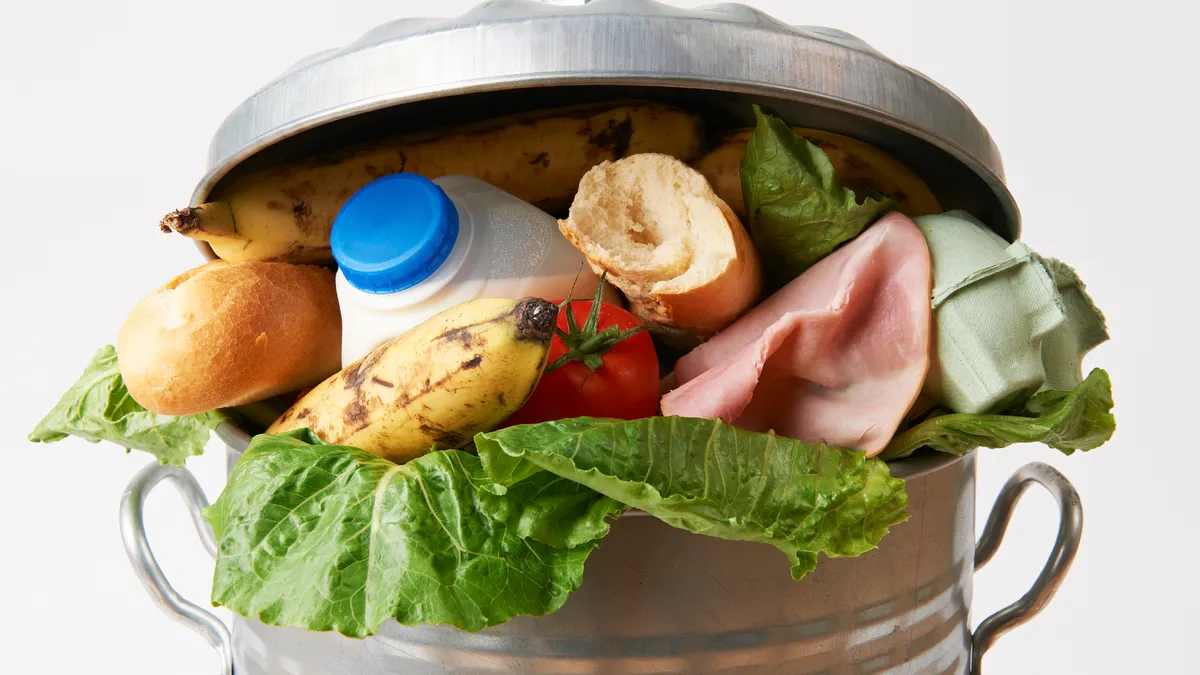Dive Brief:
- A new study from researchers at The Ohio State University found that diners were less concerned about wasting their food when they knew it would be composted as opposed to going to a landfill. The findings will be presented at the annual meeting of the Allied Social Science Associations in Chicago this week.
- The research was conducted with 266 people in the Columbus area over a two-month period last summer. Participants didn't know the study's purpose and could take as much food as they wanted in one trip, but weren't allowed to share or take any home with them. Their trays were measured after each meal to assess how much waste was left behind.
- Diners who were given information about the emissions generated by waste going to landfills left behind 77% less food than those who were given separate information about financial literacy. These "educated" diners were 39% more likely to clean their plates. Though this behavior changed notably when diners knew their food would be going to a "good" place for composting.
Dive Insight:
These same researchers also released a highly discussed study last summer which said that the majority of respondents knew about food waste but many didn't care enough to change their behavior. More than 75% of these respondents said they felt guilty about their habits, but cited convenience and concerns over food safety as factors in not wanting to change them. Consumers' willingness to waste, particularly when it comes to date label language, is a key area of focus for many researchers in the field right now.
As detailed in the EPA's Food Recovery Hierarchy — and discussed by many other organizations — the environmental and financial benefits of recovering food at the top of this hierarchy are far greater than composting it. While this process has its own economic benefits the associated costs for haulers, processors and municipalities still make it difficult even in the most supportive regions.
Another recent study found similar results about people being more willing to waste when they knew they could recycle, and this has fueled the ongoing conversation about emphasizing waste reduction. Finding ways to communicate this to consumers, and local governments, as they look for ways to manage their organic waste may be even more challenging.















